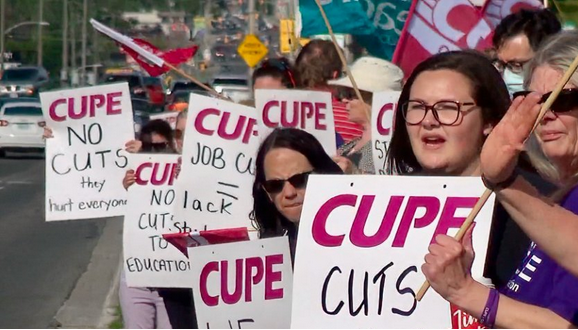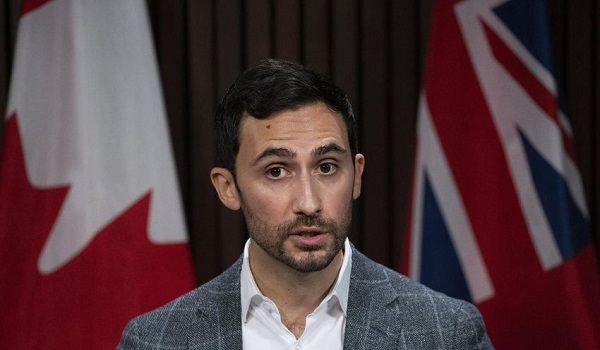CBC gave reasons they avoid calling Hamas ‘terrorists’ in war against Israel
In the wake of last week’s leaked CBC memo telling its journalists to avoid use of the word “terrorist” in reference to Hamas fighters in Israel and Gaza , the CBC’s editor in chief has crafted a more detailed missive for public release on the broadcaster’s website.
Brodie Fenlon, editor in chief and executive director of programs and standards for CBC News, posted the nearly 1,300-word reply on Monday.
“Hello and thank you for writing about our use of the word ‘terrorist,’” he begins. “During a period of tragic breaking news in Israel, a screenshot of an internal reminder about our longstanding editorial standards was published on social media — without the full context of those standards as they are practised in our newsrooms. This spiralled into a controversy that I believe is based on an incomplete understanding of our work.”
Fenlon goes on to say that the CBC does not have a “ban” on the word terrorist. “As a matter of fact, you may have heard and read that word many times on all CBC News platforms over the past week. Our journalists cite it and quote it often, with attribution. That means they also tell the audience who has used it and in what context.”
He points to a recent story about airlifting of Canadians out of the region, noting that it uses the terms terrorist and terrorism six times, in each case in quotes from Justin Trudeau, Pierre Poilievre and Chrystia Freeland.
“Attribution of the word “terrorist” has been our policy for decades,” he adds, “mirrored by other news organizations such as the BBC, AP, AFP and Reuters, among many others.”
None of that convinced Conservative MP Rachael Thomas, who took to X (formerly Twitter) with her rebuttal. “This is a group of militant men who went in and killed 1,400 people in a night,” she said, referring to Hamas. “Who kidnapped, raped and murdered women … who went in and beheaded 40 innocent babies. This is no doubt a terrorist organization. Canada has had the officially listed as such for more than 20 years.”
She adds that she wants to hold the CBC to account. “So my Conservative colleagues and I are bringing them to committee, or at least moving a motion to do so.”
The CBC’s job is to “bear witness,” Fenlon writes in his post. “But CBC News does not itself designate specific groups as terrorists, or specific acts as terrorism, regardless of the region or the events, because these words are so loaded with meaning, politics and emotion that they can end up being impediments to our journalism.”
He goes on to quote at length from the CBC’s language guide, which instructs journalists to refer to events such as the London bombings of July 2005, the Madrid train bombings of the previous year, and Sept. 11, 2001 as “attacks” and not “terrorist attacks.”
The guide also notes: “By restricting ourselves to neutral language, we aren’t faced with the problem of calling one incident a “terrorist act” (e.g., the destruction of the World Trade Center) while classifying another as, say, a mere “bombing” (e.g., the destruction of a crowded shopping mall in the Middle East).
“To be clear, this has nothing to do with Hamas or Israel, and nothing to do with the intensity of suffering and horror we saw last week,” Fenlon adds.
The post concludes: “I am not trying to convince you that this is the only way to approach editorial language … But I do hope that my explanation has reassured you of our good faith in this work, based on our mandate as an independent public service news organization — even if you disagree with the outcome here.”
This article was reported by National Post












